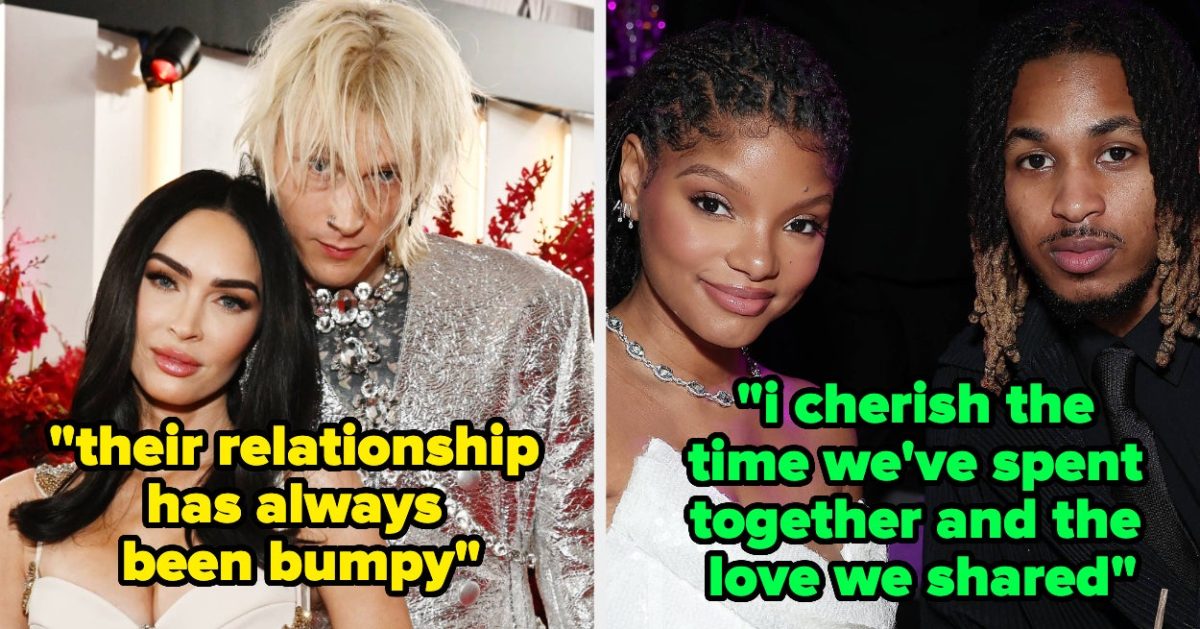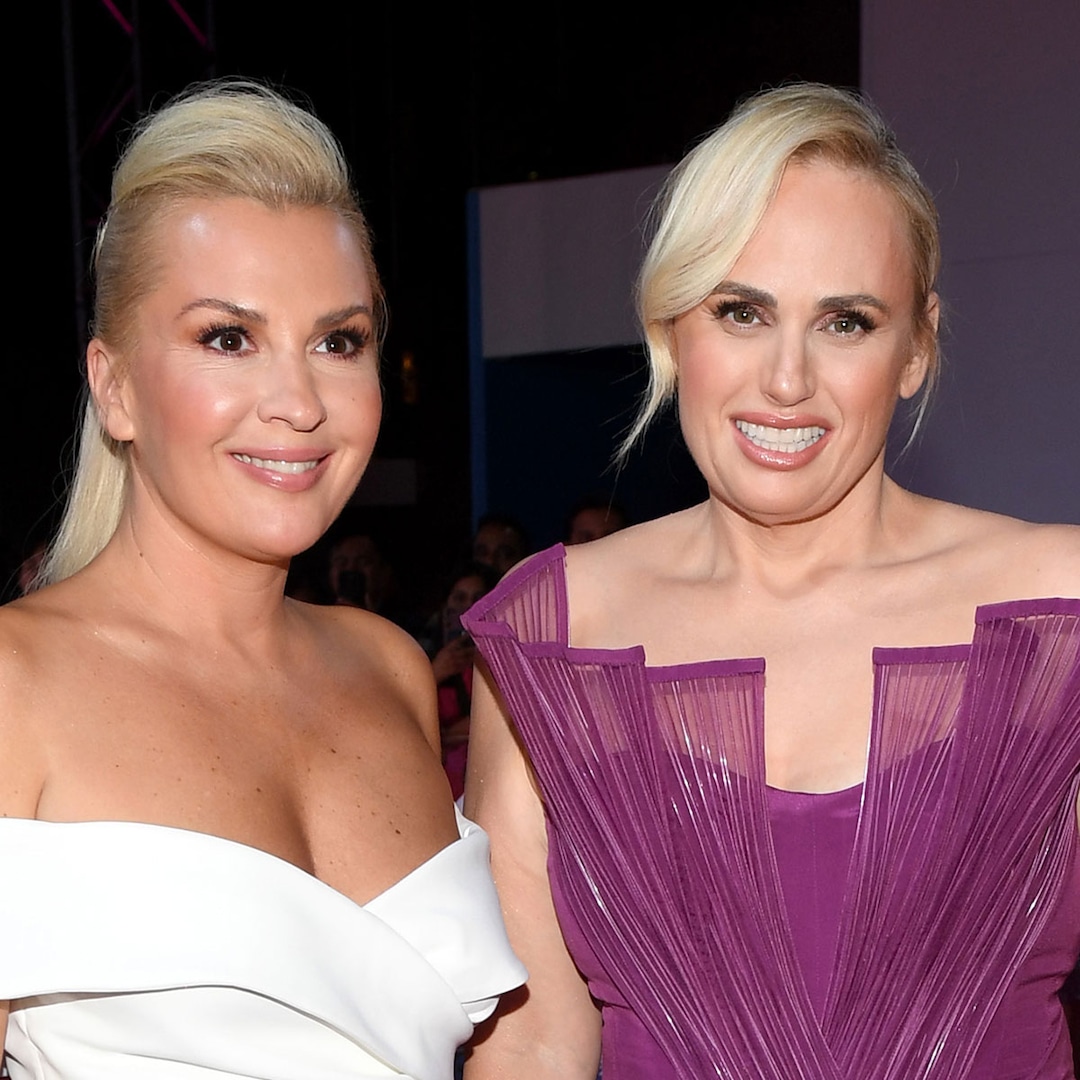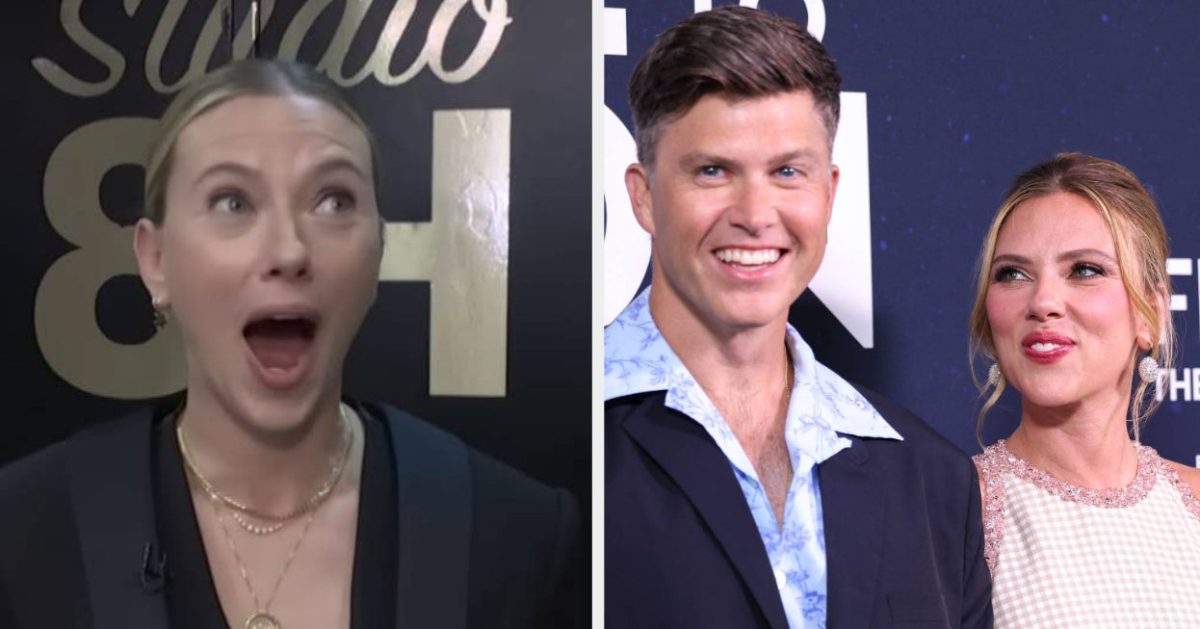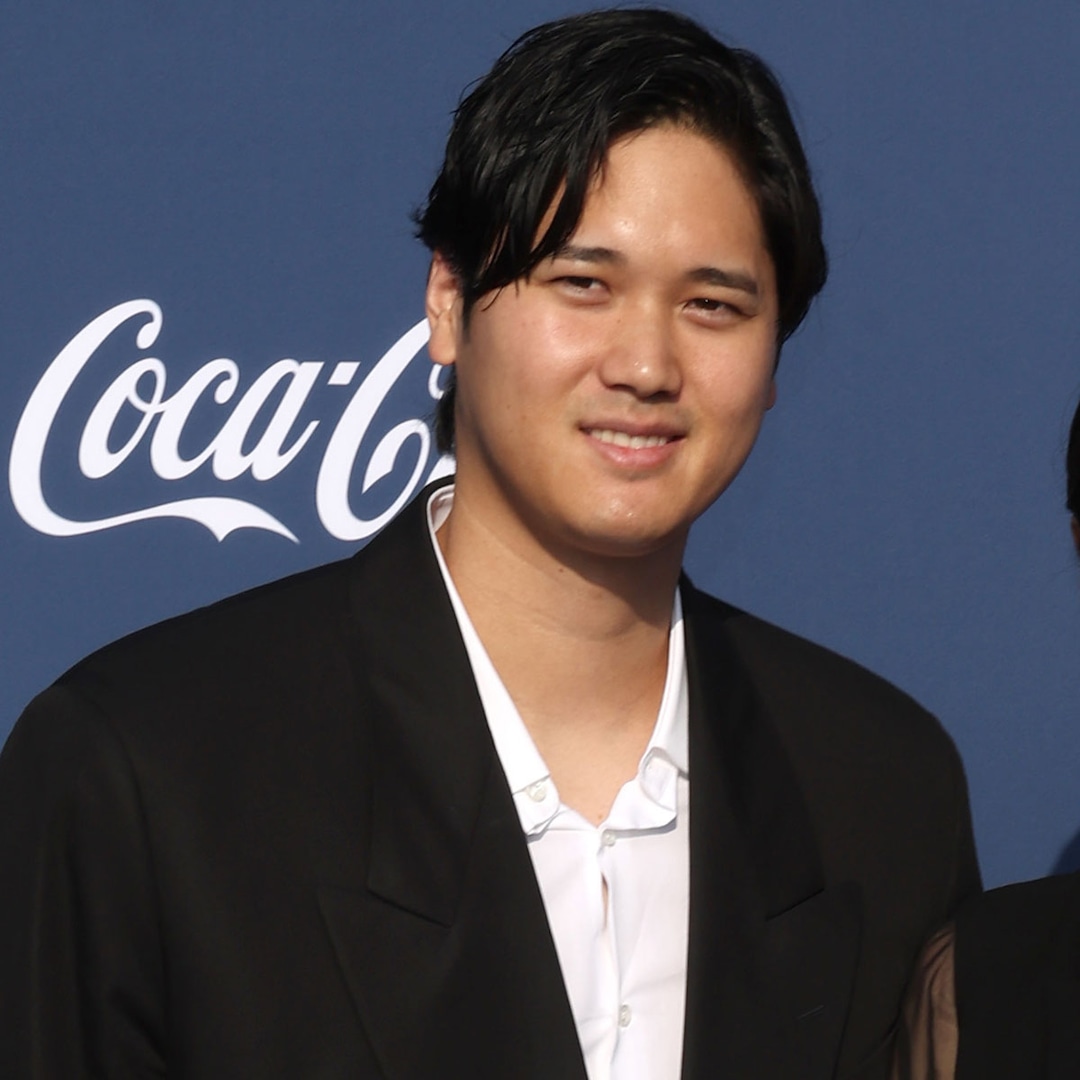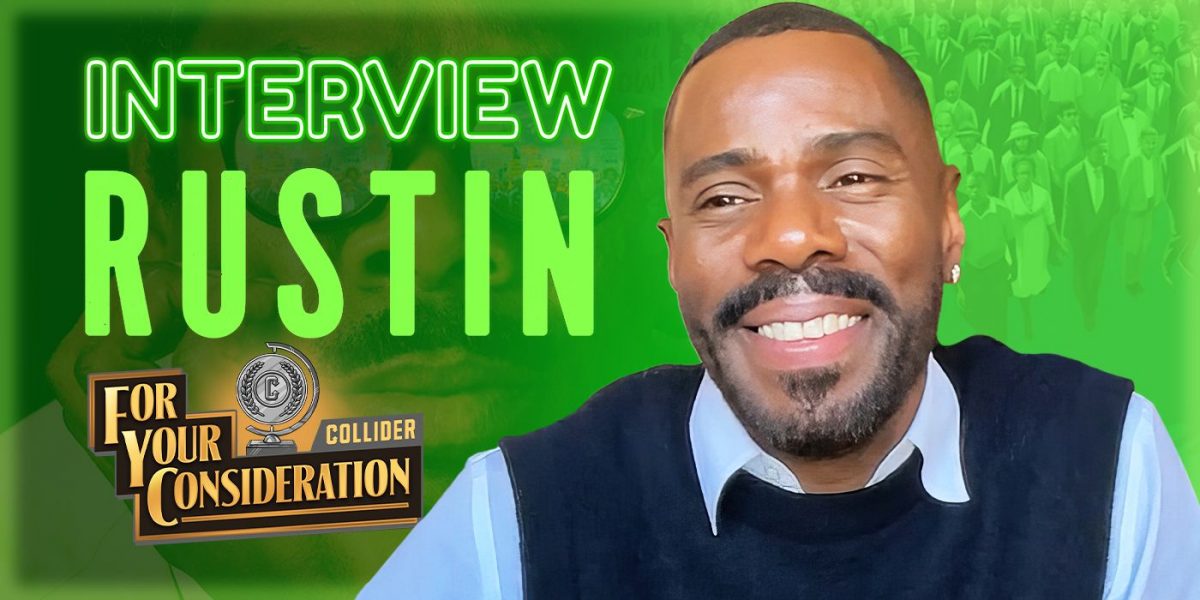
‘Rustin’s Colman Domingo on Finally Getting His First Lead Role
Nov 27, 2023
The Big Picture
Colman Domingo delivers a pitch-perfect performance in Netflix’s Rustin, capturing Bayard Rustin’s electric charisma and drive. During an interview with Collider’s Perri Nemiroff, Domingo discusses what it meant to finally be #1 on the call sheet of a feature film. On top of that, Domingo breaks down what it took for him to become Bayard Rustin, highlights his collaboration with Aml Ameen and Jeffrey Wright, and teases his directorial debut, a movie musical.
Colman Domingo is an Emmy-winning actor with dozens of titles to his name, including a couple of Oscar-winning films. He’s also an actor with sky-high screen presence and a knack for making roles feel whole, no matter the amount of screen time he gets. It truly came as a shock when I heard someone mention Rustin marked his very first lead role in a film.
While it may have been a long wait to see Domingo at #1 on the call sheet, he couldn’t have found a better role to do it with than Bayard Rustin. Domingo plays the under-recognized history-making activist and organizer while he serves as the architect behind the 1963 March on Washington. In one of the best performances of 2023, Domingo delivers pitch-perfect work capturing Rustin’s electric drive, charisma, and heart.
With Rustin now available to stream on Netflix, Domingo carved out some time to celebrate the film via an extended interview. During our chat, Domingo revisited past projects that helped pave the way to his first lead role, discussed the experience of making the movie with director George C. Wolfe, and pinpointed some personal filmmaking goals that now feel more within reach because of his Rustin experience.
You can hear about it all straight from Domingo in the video interview at the top of this article, or you can read the full conversation in transcript form below.
PERRI NEMIROFF: I was recently talking to Avy Kaufman and she was telling me you can’t miss this performance, this is one you’re going to be talking about for months to come and then beyond. She was not wrong! You are something else in this movie!
COLMAN DOMINGO: Perri, thank you so much. I appreciate that. This film was made with so much love and respect and honor for this unsung hero of many. I’m glad that it’s being received with as much love, truly, because it’s monumental. It’s pulling this man out of the shadows of history and giving him his moment.
You truly feel it while you’re watching it. I feel like that love does radiate off the screen.
I’m starting with a really big question inspired by the film because I really love the idea that’s mentioned at the very beginning, owning your power. I want to apply that to your career overall and this business. Can you pinpoint a moment when you first learned the power of your own voice on set and started to own your power in this industry?
DOMINGO: Wow, that’s a great question, Perri! That’s great. Wow! You hit hard. That’s good. You know what? The very first thing, I think, when it came to owning my power was actually, as a young actor, I used to be very frustrated with the roles that I was being offered to audition. As a young Black man in the world, I was getting all these roles that were, you know, “Drug Dealer #2,” you name it. I remember my mother told me, I was so frustrated one time, she says, “Don’t complain about it. You have to do something about it.” So that’s why I became a writer. I decided to write the roles that I wanted to see. And actually, by writing and then directing and producing, I started to feel like I had power. I had power with what stories I wanted to tell, and then I wanted to empower my fellow brothers and sisters – white, Black, and other – like, “Write these stories. Write these incredible stories about women. You write it. Let’s not just wait for the industry to write it. Do it yourself.”
So that’s when I actually started to own my power, and that was maybe when I was 21 years old. And then I think that that power has led me into the rooms that I’ve been in. People know that when you hire me, you’re hiring somebody who definitely has a voice. You know you’re gonna get every part of me. I’m going to help lead a set or talk about how we build this thing. I’m not just gonna show up and learn my lines and hit my marks. I’m gonna figure out, “How are they being taken care of?” In the theater, they call me, there’s always a role for the “equity deputy.” If you don’t know that, my friends out there, it’s the role that the company says, “Oh, this is the person you go to if there’s any problems with anything.” And it’s always me. It’s always been me. I’ve always been a person, I guess, who felt like I had a sense of power in this industry, and it started when I was about 21.
Equity deputy. I love that! That should be in the special skills section on a headshot resume!
Image via Netflix
I do want to get into you being a leader on this set because I heard in another interview someone say that this was actually your first lead role in a feature film, and my jaw dropped. I couldn’t believe it.
DOMINGO: I know, right? It’s wild. People always know me. When I see them on the street, they know I’m that guy, but they don’t know what movie they’ve seen me in because I sort of shape-shift and I’m always a supporting player, and you never know where I’m gonna pop out. And I change my weight and my age and my accents, you name it. [Laughs] So that was happening for a very long time. And then, the idea for this role, I feel like the role to sort of match my heart’s desire, the idea that I could give everything I could as an actor for a role like this was everything. So, I knew I had everything to give to it, but also, I knew it was the experience of, like, 32 years in the making. I didn’t just get out of grad school and get my first lead role. I mean, many people have and that’s wonderful, but my experience was I get to bring in this whole life experience and make sure that this truly counts in every single way.
It sounds like you’ve always known how to be a really good leader on a production, but can you pinpoint a past #1 on the call sheet who inspired you in terms of how they carried themselves on set and influenced the people around them?
DOMINGO: Wow, how beautiful is that? Immediately you made me think of Sam Waterston on Law & Order, actually. I don’t know if he’s number one on the call sheet, but I was a young actor, and as a young actor, as a day player, you go on these sets and you try to figure out how to navigate this. It’s so many moving pieces, and you even think, “How do you even learn your lines?” There’s so much happening! [Laughs] And Sam had such a grace and warmth, and he was very pleasant, and he had a great work ethic that I would start to watch. I watched the way he sort of built up his scenes. He started slowly and built them. He was patient with himself, and he was also very kind. There was a seed planted there. In the storm of production, kindness is the most important thing.
It’s so true. I wish that was emphasized even more than it actually is because I feel like it would completely change the nature of this business.
DOMINGO: I completely agree 100%. I know that’s a thing that I wanted to make sure of because I have a lot of young actors in this film, and for a lot of them, it was their first film. So, in part, I was becoming their Sam Waterston. I want to show them how to lead because I expect them all to lead someday. And I think I figured out a beautiful way to do it to make sure everyone’s heard and everyone feels valued, and everyone has an incredible work ethic. And you really can. It takes everyone. It’s such a team effort, and not one person is more worthy than the other. Every PA, every transportation, every grip, we all have a job to do, but I think it’s up to the #1. The #1 has to be the soul of the production. It’s actually not up to the producers. It’s that person who’s gonna be on that set every single day, and on Rustin, I was on set 14 hours a day, every day. Maybe I had two days off of the whole production. But it requires you to lead and show how to get it done, and I think it can be done with such grace and peace and love.
Image via Netflix
Absolutely. I’ll pivot to another leader on this set now because I’m a big fan of George. Of course you two have worked together, so what is something he did for you on the set of Ma Rainey that you were excited to experience again on this film, but then also, is there anything he did for you on the set of Rustin that made you look at him and go, “I knew you were good, but I didn’t realize you were that good?”
DOMINGO: [Laughs] Whoa, that’s a great question! On Ma Rainey, George likes to have private rehearsals with his actors, which is great. And that really means truly private. That’s no DP, no first AD, just himself and the actors. And there was this one time where he pulled me aside when I was gonna have a monologue towards the end of Ma Rainey, and he said, “Colman, let’s go through the monologue.” We went through it. He says, “You’ve been directing a lot lately, haven’t you?” I said, “Yeah, I have,” and I said it with such pride. And he said, “I can tell.” He said, “You know too much.” And I was like, “What does that mean? Isn’t that a good thing?” He said, “It is, sort of.” He said, “But as an actor, you have to liberate yourself. You have to go to that space of not knowing.” He said, “Not saying you don’t need to know your lines and your research. You know all this stuff. But you, Colman, also know the shape of the scene and what you’re going for aesthetically, and I want you to actually experience it and liberate yourself because it may change. It may be different and unique.” And I thought that was the best note I could get. After doing this for so long, it felt like it was restarting the way I create again.
And so I took that into Rustin, and with Rustin, to be very honest, there’s a word that I’ll say that I found with George that I didn’t know I was gonna get with Rustin, which was a sense of delicacy. Being delicate. He is very delicate with me, because also I think that he knew how much I had to shoulder because George is a workhorse. He makes sure people are up to task. He’s very clear about it. He’s very strong-minded, strong-willed, and he’s tough in a good way. But he knew there needed to be a delicacy in this film, and he was very delicate with me. I think that was something new for me to experience.
Kindness and delicacy – I want that on every set out there.
Image via Netflix
Alright, let’s get into the specifics of bringing Bayard Rustin to screen. This is a big question and something I’m always curious about for any actor bringing a real person to screen in a film, but I’m especially curious in your case because I’ve heard you describe Bayard as a caricature, someone who created himself, in a sense, for other people. When you’re playing a real person like that, how do you draw the line between impersonation and bringing a fully realized, authentic, and layered version of that person to screen?
DOMINGO: That’s a great question. The first thing is, there are so many things about Bayard which are so fascinating. The idea that this man was openly gay at that time – not only openly gay, he played the lute, he sang Elizabethan love songs, recorded an album, he was on Broadway, he was a star athlete, he was an organizer, he was a war resister, he was a young communist. Who is this guy? They don’t make ‘em like that!
And, on top of it, if you go through his research, debates, and interviews, he has this Mid-Atlantic standard-ish accent, and you’re like, “What is this? Wait. It sounds British at times.” And there are times when you’re like, “But no, this sounds a little like Katharine Hepburn.” And then you’re like, “Wait, what is this accent?” And I asked Rachelle Horowitz, who was one of his dear friends and comrades who actually organized transportation when she was 19 years old for Bayard Rustin for the March on Washington, I said, “What was his accent?” She says, “Oh, he made that up.” I was like, “He made it up? That’s fantastic.” He really truly was his own creation. You know, he wore his hair up very high on his head, shocking gray, and a time when brothers usually had sharp fades and stuff like that for the movement. But he was really just kind of a hippie in a way. So I was like, “Oh, great. This is a lot to put on.” So I actually worked my voice, which his voice is about three octaves higher than mine, and I worked that accent, and I created that in our rehearsals. And at some point, George loved it, but he also said, “Okay, that’s great. I wanna make sure we’re not doing mimicry. If you could bring him down a bit closer to your voice, find that middle ground. Now take some of it off.” And that’s what we did.
It was very important for me, more than anything, to make sure that I got his sense of humor, his sense of touch, the way he moved his body, the way he felt free in spaces, or times when he didn’t, when he felt constrained. So I wanted to really find in every scene how he was different and how he was taking in information in his body. And that’s what makes him human. That’s what makes him vulnerable. That makes him real. The most beautiful thing is that one of my dear friends says, “I don’t see you, but I see you at the same time. I know it’s not you, but there’s that thing that you create with your spirit for another person, which is beautiful. It’s a beautiful marriage.” So that’s my hope, that I didn’t just leave myself at the door, but I infused it with some of mine, too. But he’s his own.
That’s such a beautiful description right there, and so successful in all those respects.
Image via Netflix
This might be overly prescribed and not necessarily the way you tackled it, but given how many things you just listed off, is there a starting point? What’s the first thing you wrapped your head around when playing Bayard, but then also, what was the very last piece of the puzzle? The thing you were finally able to capture that made you think, “Yep, I got it now?”
DOMINGO: I think one of the first things that I tried to attempt to get is his intelligence because he knew so much. He was a great organizer and strategist, and so I wanted to download what he knew. How he would go to India and get the teachings from Gandhi to learn about passive resistance. I think that he was very much a person of knowledge and travel, and so that gave me a clue to who he was. You have images of his apartment in Manhattan, which [is] filled with masks and canes. He loves walking sticks and chains and necklaces and jewelry. That gives you a sense of who he was in the world, you know what I mean? So you get all that stuff, and you download that.
And when I think I finally found him is really when I found his voice, to be very honest. When I found how he uses his voice. Because sometimes in rooms in the film, I will sort of make it a bit more British in a way or make it a bit more Mid-Atlantic standard. And then sometimes I actually take a lot off of it when he’s just being very vulnerable and in private spaces and he’s not performative in any way. Once I found that, I understood him more, and I understood that it was a device. That creating your own language, in a way, is a device. Why else would you do that? Because at first, it was a question of, “Why would you do something like that?” Because it’s part of your armor as well. If you walk into one of these rooms in the 1960s and you suddenly have a British accent, the world must look at you differently. [Laughs] Right?
You are exceptional all on your own in this film, but you also have a phenomenal ensemble around you. One thing I always love highlighting in interviews is how many different approaches to acting there are out there, so of everyone in this ensemble, can you pinpoint two co-stars with a completely different approach to the work where when you’re their scene partner, you know you’ll have a different acting experience?
DOMINGO: Oh, that’s great. I would like to point out Aml Ameen, who plays Martin Luther King, and Jeffrey Wright. Aml Ameen, first of all, when we started to play off of each other, I loved that there was not any Martin Luther King that I’ve experienced before. And I’ve experienced it because I was actually in Selma with David Oyelowo’s Martin Luther King, which is profound. But this was all new. This was grounded. It was actually a bit more vulnerable, and it was young and very human, and I loved what he was bringing. And so I had to look at him and take out anything that I thought I knew about Martin Luther King and experience what this is right here. And Aml and I, we play an intimacy that I think is rarely seen, actually, to be honest, especially between a queer character and a straight character in film, especially with Black men. And it’s a delicacy and intimacy that we play with each other, which is beautiful, of true friendship and brotherhood.
And then you have Jeffrey Wright who is just villainous as all get out. It was delicious to him. You could tell that he knew his function. He came in, he was like, “Oh no, I’m sort of the big bad. I’m the big bad in these coalitions right now.” He’s a northerner. Bayard’s a northerner as well, but he comes in and he’s taking a piss on Martin Luther King and everybody else because it’s Adam Clayton Powell’s bravado and his ego. Jeffrey Wright, what I love about him is you never know what you’re gonna get from take to take. He’s like me. That’s why we sort of vibe off of each other because it was like, “I don’t know what he’s gonna give me. I don’t know what version of this, what’s gonna spark him in this moment.” It was beautiful to watch. And I loved the fact that most of the time, I just had to be shell-shocked at the information he was pouring out at me to receive. It was like he was just beating me down, which was beautiful.
Image via Netflix
What was it like watching him go at it with Glynn? One of my absolute favorite line deliveries of the whole damn year is when he says, “We have moved on.” I think I’ve replayed that moment more than any other scene in any film of 2023.
DOMINGO: [Laughs] Let me tell you, there was one take where Glynn Turman slammed his fist down on the table and the earth shook because you have, first of all, this legendary actor, this senior member of our acting company with all the gravitas in the world, owning his power. He’s truly owning his power. And when I tell you, all the actors were like, “Whoa, something’s happening now.” It’s phenomenal. Glynn Turman is one of my favorite actors to work with. I’ll work with him over and over again. He’s just pure class.
That moment rattled me to my core in the best possible way.
I’m going to end with another big question, but it’s one that I find myself asking a lot lately because I always like looking to the promising futures out there, and I also like asking this question whenever someone hits a career milestone like having your first lead role in a feature film. Do you have any personal filmmaking goals that feel more within reach to you than ever because you have played Rustin, and also just because this movie exists?
COLMAN DOMINGO: I do. I do. I can’t say it just yet, but I’m going to make my directorial debut for a feature film playing an American icon. I co-wrote the script, and it’s a movie musical. [Laughs]
I’m losing my mind right now!
DOMINGO: I don’t know if I’m gonna lose my mind or what because I’m like, “Okay, I’m going from my first leading role in a feature film to now slash, slash, slash, slash doing everything in the world.” So I might have to get some pointers and tips from Bradley Cooper and people like that to say, “Am I crazy?” But I actually feel like I’m up for the task because I know that I see it visually, I understand it dramaturgically, and I feel like it’s like a painting. I want to do the whole painting, and I can be in it at the same time.
Rustin Activist Bayard Rustin faces racism and homophobia as he helps change the course of Civil Rights history by orchestrating the 1963 March on Washington. Release Date November 17, 2023 Director George C. Wolfe Cast Colman Domingo, Chris Rock, Glynn Turman, Aml Ameen Rating PG-13 Runtime 106 minutes
Watch Here
Publisher: Source link
2024 Was Quiiiiite The Year For Celebrity Breakups — Here Are 17 Couples We Lost This Year
Jennifer Lopez filed for divorce from Ben Affleck after two years of marriage.View Entire Post › Disclaimer: This story is auto-aggregated by a computer program and has not been created or edited by filmibee.Publisher: Source link
Dec 31, 2024
Rebel Wilson and Ramona Agruma Are Now Legally Married
Rebel Wilson and Ramona Agruma's marriage is aca-official. Three months after have a wedding ceremony in Italy, the Pitch Perfect star and fashion designer legally tied the knot during a second celebration in Australia that was officiated by Rebel's sister…
Dec 31, 2024
Scarlett Johansson Reacts To Colin Jost’s Dirty SNL Joke
Reacting to the video, several SNL fans thanked Scarlett for being a “great sport” as they commented on how "brutal" the jokes were.“having ScarJo there just made it 100x better,” one comment read. “Super cool of Scarlett to be such…
Dec 30, 2024
Shohei Ohtani and Wife Mamiko Tanaka Expecting First Baby
He noted that his wife is a "normal Japanese woman" who he has known for three or four years and added that he proposed to her in 2023, the outlet said. In March, a photo of Ohtani and his wife…
Dec 30, 2024








